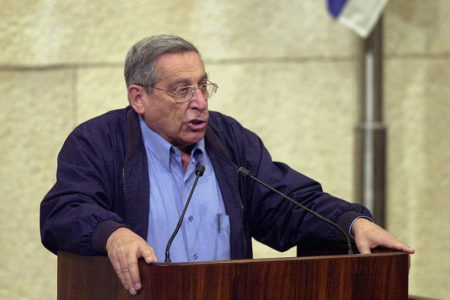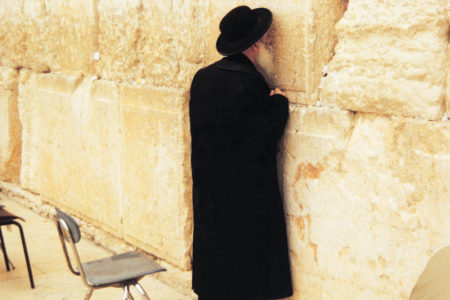Micah’s Call for Justice
Micah 3:1-12
In the book of Micah, God holds Judah’s leaders responsible and accountable for their abuse of the underprivileged. Earlier, Micah condemned those who used the nation’s legal system to defraud people of their property. However, in this chapter, Micah more fully described Judah’s corruption, denounced the wickedness of civil and religious leaders, and announced the imminence of divine judgment.
Corrupt Politicians
Micah began with a call for leaders to hear God’s message: “Hear, I pray you, O heads of Jacob, and ye princes of the house of Israel, Is it not for you to know justice?” (v. 1). The names “Jacob” and “Israel” refer to the southern kingdom of Judah because Assyria already had destroyed the northern kingdom. It is these “heads” and “princes” of Judah whom Micah condemned, those who were responsible for maintaining order and justice in Judah’s national life—political leaders, civic governors, judges, elders of tribes, and military officials. God had appointed these men to insure justice.
The prophet’s rhetorical question, “Is it not for you to know justice?” expects a positive response. It was mandatory for all Judah’s rulers and leaders, especially judges, to know the Mosaic Law and adjudicate using God’s standards of right and wrong (Dt. 1:13–17). Such was not the case. The judges were unprincipled men who had long forsaken the Mosaic standard of justice for new, dishonest laws that benefited their evil agendas.
Micah described these men as follows: They “hate the good, and love the evil” (v. 2). They no longer made judicial decisions based on what was right and good; but, loving evil, they aided and abetted the criminals in Judean society for their own greedy, selfish gain.
The description of their wickedness becomes even more intense:
[They] pluck off their skin from them, and their flesh from their bones; Who also eat the flesh of my people, and flay their skin from them; and they break their bones, and chop them in pieces, as for the pot, and like flesh within the caldron (vv. 2–3).
Judah’s leaders were like starving, wild animals that unconscionably, savagely, and unmercifully grabbed their prey, ripped open its skin, and gorged themselves on the animal’s flesh and blood. So thorough were these butchers that they consumed their victims as cooks who chopped up the meat and ground up the bones of an animal they were going to boil in a pot. These tyrannical leaders were heartless, were cruel, and totally consumed every possession their victims owned.
The use of such grotesque metaphors emphasized the deep depravity of these inhumane rulers who should have been the guardians of justice, guarantors of human rights, and protectors of Judean society. Instead, they abused their positions and used brutal lawlessness to satisfy their greed for power, property, and possessions. God calls the prey of these ungodly rulers “my people,” a term of endearment used to depict the Lord’s loving relationship with His covenant people Israel (v. 3).
Micah said a day would come when the tables would be turned, and these lawless rulers would cry out fervently to God for mercy in their hour of need:
Then shall they cry unto the LORD, but he will not hear them; he will even hide his face from them at that time, as they have behaved themselves ill in their doings (v. 4).
These profane men had lived and functioned as if there were no God to whom they must give account. Those who showed no mercy to the people of Judah and turned a deaf ear to their cries will receive the same treatment they meted out. God will hide His face from them and refuse to hear the cries of their anguish. He will be silent to their pleas and show them no grace or mercy.
Covetous Prophets
The second group that God condemns is that of the false prophets:
Thus saith the LORD concerning the prophets that make my people err, that bite with their teeth, and cry, Peace; and he that putteth not into their mouths, they even prepare war against him (v. 5).
The people looked to these perverted prophets as men who knew the mind of God and, in so knowing, would direct the nation properly. Instead, these pseudo-prophets deliberately misled Judah for their own selfish and greedy ends. God condemns such people and puts them under a divine curse (Dt. 27:18).
The phrase bite with their teeth has been interpreted two ways. Some believe the verse teaches these false prophets predicted peace and prosperity only when they received food or material goods in return. Others believe the verse speaks about these men’s lying words, which inflicted harm like the bite of a serpent. Both teachings are true. These pseudo-prophets spoke of peace and prosperity to those who provided for them monetarily or materially. But to someone who gave nothing, these prophets prepared, or sanctified, “war against him”—that is, predicted a curse.
Therefore, Micah declared,
Night shall be unto you, that ye shall not have a vision; and it shall be dark unto you, that ye shall not divine; and the sun shall go down over the prophets, and the day shall be dark over them (v. 6).
God’s judgment will descend on these charlatans like night and darkness, which depicted their impending destruction. God will not give them visions or answers to explain their calamity. Nor will these prophets say they have visions from God of peace and prosperity. And in the day of their calamity, these prophets no longer will seek answers to their dilemma by using divination (magic and spiritism). The sun (v. 6) will set on their prosperity—and on any possibility of deliverance.
In that day “shall the seers be ashamed, and the diviners confounded; yea, they shall all cover their lips; for there is no answer from God” (v. 7). Men who looked to these prophets for direction and illumination concerning the future will disown them and put them to public shame. These prophets will be “confounded” or struck dumb because their prophetic gift will be stripped from them. In humiliation, they will “cover their lips” (v. 7). Covering the outer lip (including the face) was a sign of embarrassment, shame, and mourning (Lev. 13:45). Covering their mouths was an appropriate sign that they had nothing to say. If, perhaps, they sought God for a remedy to their predicament, they would receive no answer. God will remain silent and provide no revelation. It would seem that these prophets did possess a true gift from God; but over time, they prostituted it for financial gain.
In contrast to the powerlessness of the pseudo-prophets, Micah’s power was from God. He told the people, “But truly I am full of power by the Spirit of the LORD, and of judgment, and of might, to declare unto Jacob his transgression, and to Israel his sin” (v. 8). Micah stated three facts about his power and authority. First, he was filled by the power of the Holy Spirit to speak God’s Word. Second, his words of justice or righteous judgment were not his own. They came directly from God. Third, he was given might, or manly courage, to stand against men fearlessly and preach boldly against the sins of “Jacob” and “Israel” (the entire nation, cf. 3:1, 9).
Condemning Prophecy
A scathing recapitulation of the sins of Judah’s rulers and religious leaders follows in verse 9. The prophet denounced their false confidence in believing that the Lord would not allow calamity to come on them. These men, who were to be the upholders of justice, in reality “abhor [despise] justice, and pervert [twist] all equity” (v. 9). They despised justice and twisted and distorted the facts of each case that came before Judah’s courts. Those accused in a lawsuit could never be assured a fair verdict unless they bribed the judge.
These leaders “build up Zion with blood, and Jerusalem with iniquity”(v. 10). That is, the means of building Jerusalem was through extortion by the wealthy at the expense of the poor. Jerusalem’s buildings and palaces were built with blood money gained by fraud, confiscation of property, and even murder. The entire justice system was utterly corrupt.
Civil and religious leaders performed their duties with an eye on getting wealthy: “Her heads judge for reward, and her priests teach for hire, and her prophets divine for money” (v. 11). Judicial decisions were predicated on who provided the largest bribes. God established the priests to teach; interpret the Law; and decide questions on religion and ritual, free of charge (Dt. 17:8–11). But they only did so for financial gain. And He established the prophets, whom Micah already had denounced (cf. v. 5), to provide revelation from God gratuitously. But they used demonic divination and charged for it (cf. Balaam, Num. 23—24).
Micah continued, “Yet will they lean [support themselves] upon the LORD, and say, Is not the LORD among us? No evil can come upon us” (v. 11). These corrupt leaders believed they had immunity from God’s judgment because (1) they were in a covenant relationship with Him; (2) God’s Shekinah glory was present in the Holy of Holies; and (3) they practiced Judaism by offering the required animal sacrifices at specified times, in obedience to the Lord. For these reasons, they erroneously believed the Lord’s protection would safeguard them from destruction.
How mistaken these men were. Their gross immorality and hypocritical religious practices made God’s judgment of them inevitable. Micah said,
Therefore shall Zion for your sake be plowed as a field, and Jerusalem shall become heaps, and the mountain of the house as the high places of the forest (v. 12).
“For your sake,” or because of the leaders’ sins, three events will befall Jerusalem. First, Zion will be completely destroyed and become a leveled field for plowing and planting seed. Second, Jerusalem will be torn down and left in ruins and rubble. Third, the Temple Mount will become overgrown with trees, briars, and thorns.
King Hezekiah took Micah’s prophecy to heart. He humbled himself, repented of sin, and brought religious and social reforms to Judah (Jer. 26:17–19). Because Judah turned to God, destruction was postponed for over a century.
Micah’s message is certainly a word from God for our time. The economic, political, religious, and moral situation in America is not unlike Judah’s. People skirt or break laws for greed, material gain, or to drive up stock prices. Politicians take advantage of legal loopholes to gain political advantage or fatten their campaign coffers. Americans worship at the feet of materialism and technology during the week and give God lip service in church on Sunday, with little or no commitment. The nation needs to heed Micah’s message before it suffers the same fate as Judah.







